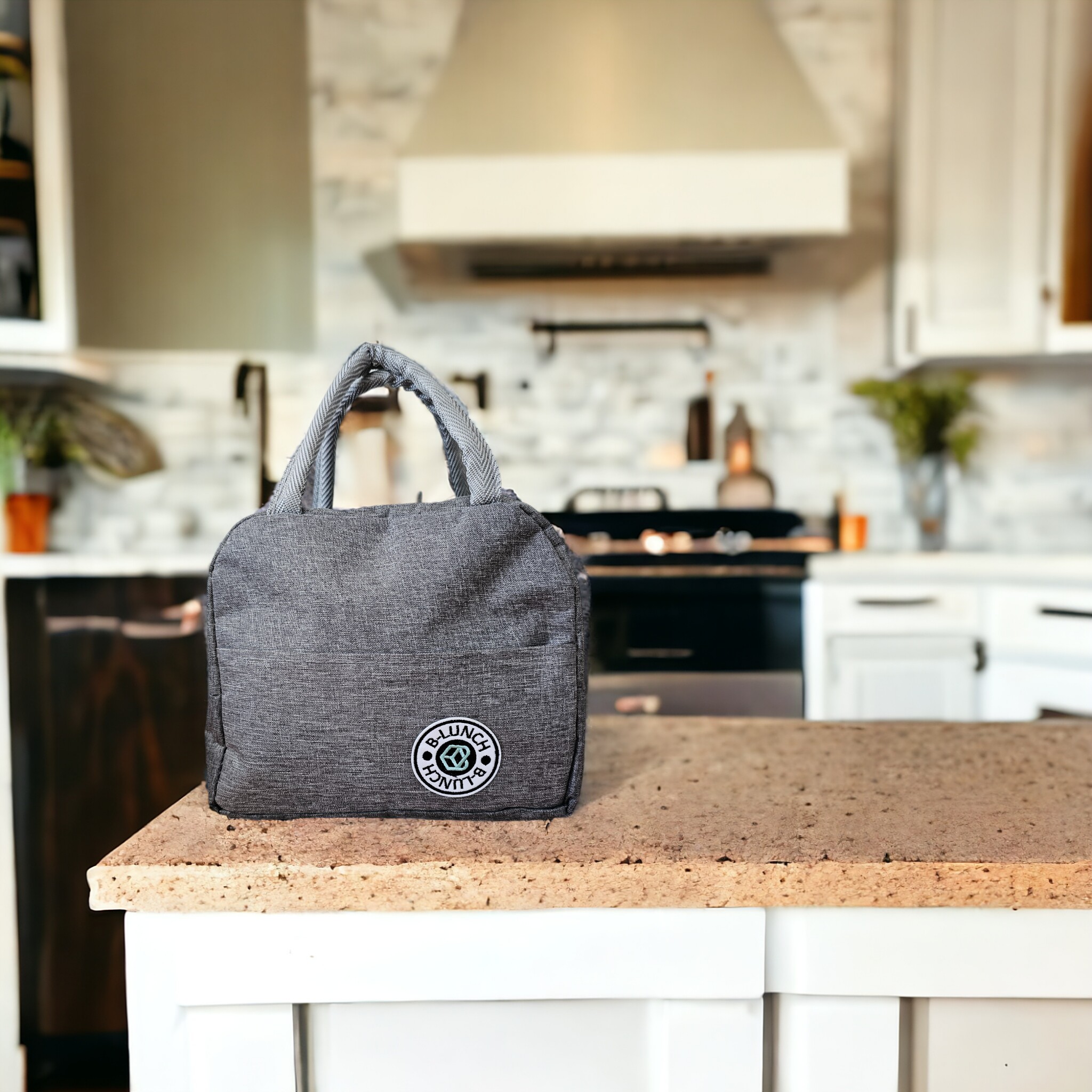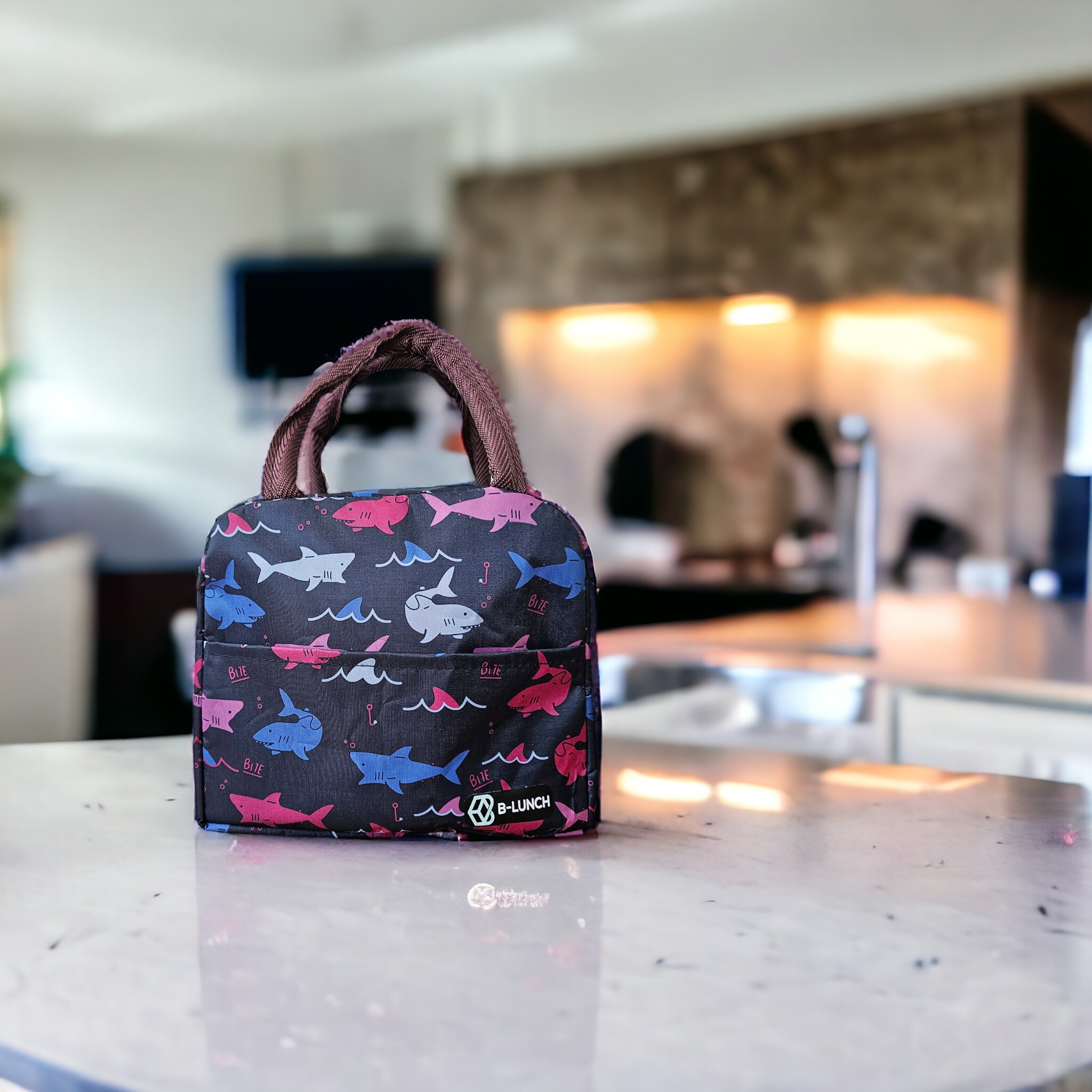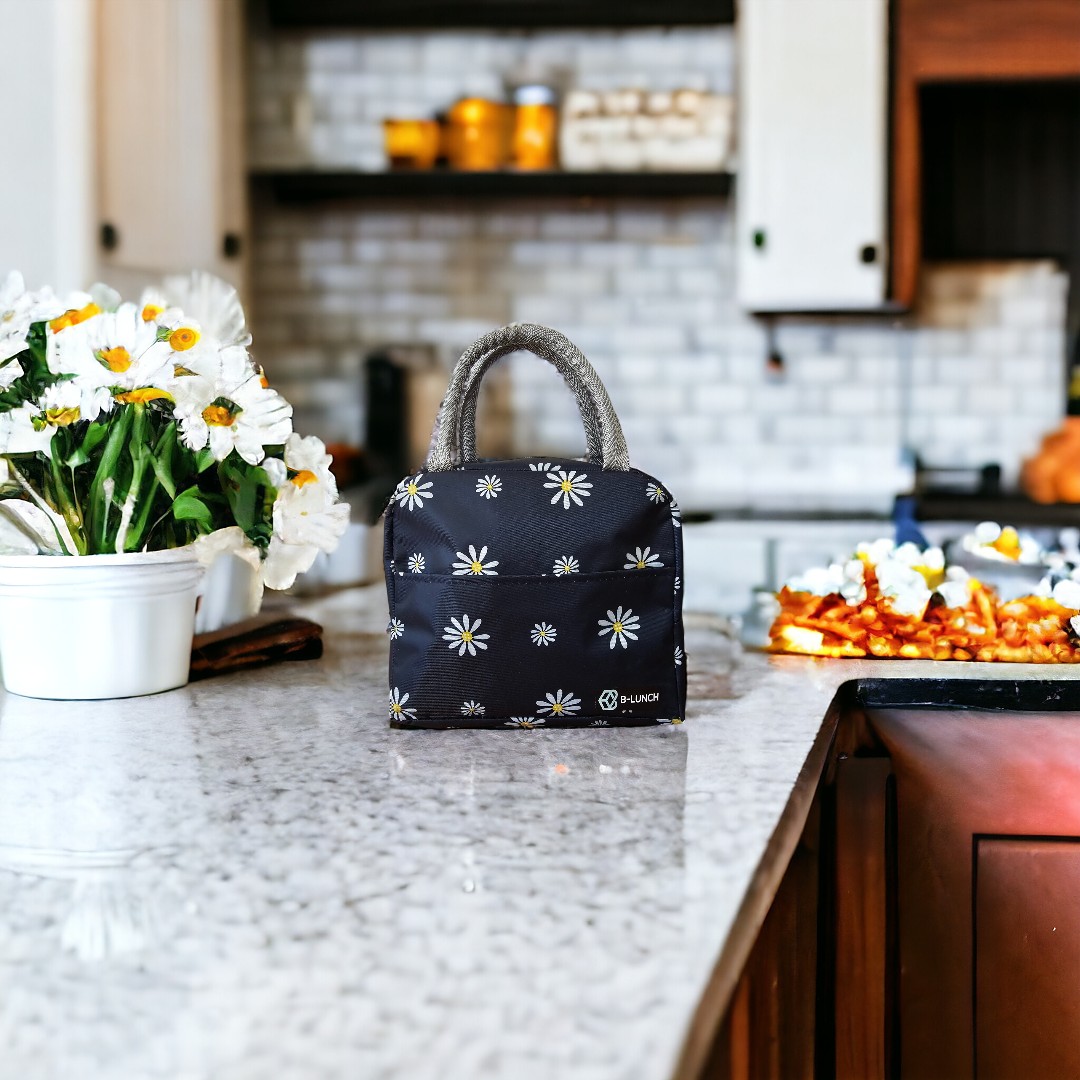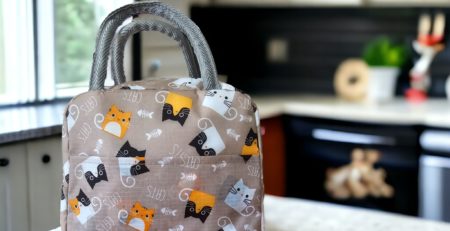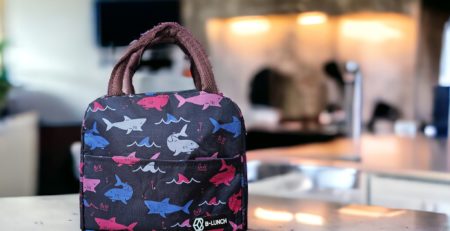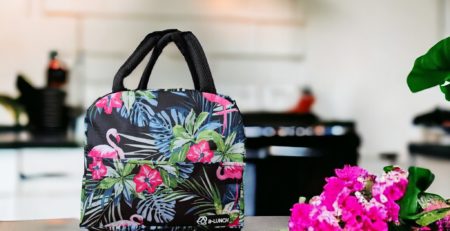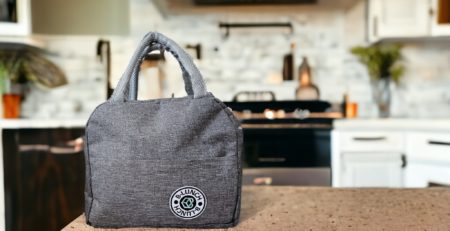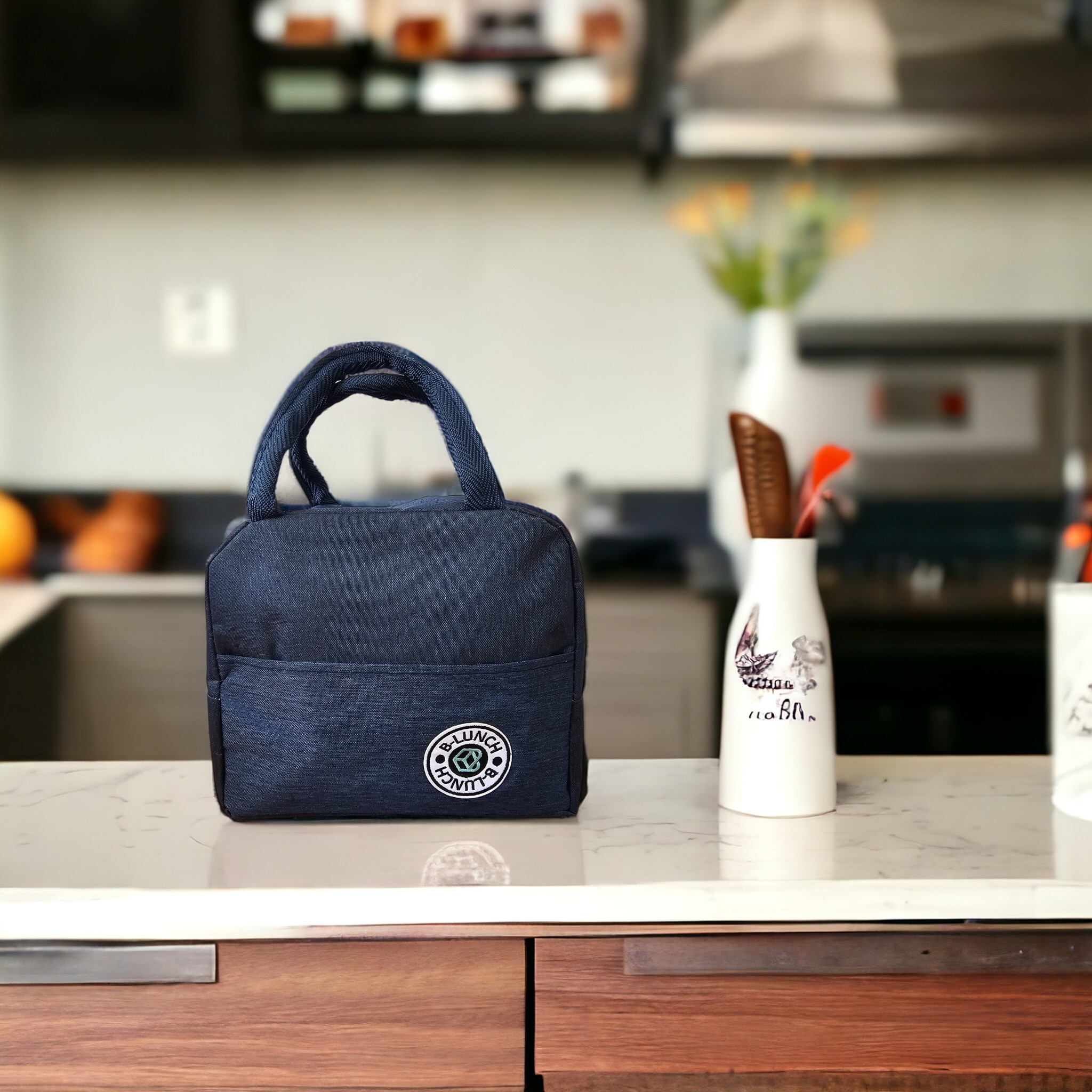
Healthy eating plays a vital role in maintaining overall well-being, yet it can often feel challenging in a world filled with fast food and convenience meals. One simple yet powerful tool that can support healthy eating habits is the humble lunch bag. By enabling individuals to carry homemade meals, snacks, and beverages, lunch bags help foster better nutritional choices, portion control, and mindful eating. This article explores how lunch bags contribute to healthier eating habits and why they’ve become indispensable in modern lifestyles.
Encouraging Homemade Meals
One of the primary ways lunch bags promote healthy eating is by encouraging people to prepare meals at home. Home-cooked meals often contain fewer unhealthy fats, added sugars, and sodium compared to restaurant or packaged foods. Preparing food at home also allows for better control over ingredients and portion sizes.
When you have a reliable lunch bag, it becomes easier to pack your meals, eliminating the need to rely on store-bought or processed foods. Whether you’re heading to work, school, or a day out, a well-packed lunch bag ensures you have access to balanced, nutritious meals that meet your dietary needs.
Portion Control Made Easy
Overeating is one of the key contributors to unhealthy eating habits. Lunch bags help address this issue by enabling portion control. Instead of consuming oversized portions from restaurants or fast food outlets, packing your lunch allows you to decide exactly how much food you’ll eat.
For example, dividing your meals into compartments or containers within your lunch bag ensures a balanced distribution of food groups—proteins, vegetables, carbohydrates, and healthy fats. Some lunch bags even come with pre-portioned containers, which further simplify the process of creating a balanced meal.
Encouraging Balanced Nutrition
When you pack your lunch, you have the opportunity to include a variety of food groups to meet your nutritional needs. A thoughtfully packed lunch bag might include:
- Proteins: Grilled chicken, tofu, beans, or boiled eggs for sustained energy.
- Fruits and Vegetables: Fresh produce to provide essential vitamins, minerals, and fiber.
- Whole Grains: Brown rice, quinoa, or whole-grain bread for lasting energy.
- Healthy Snacks: Nuts, seeds, or yogurt for mid-day hunger pangs.
By planning meals and snacks in advance, lunch bags help ensure your diet includes a well-rounded selection of nutrients, supporting long-term health goals.
Supporting Weight Management
Bringing your meals in a lunch bag is an effective way to manage your weight. Pre-planned, portion-controlled meals can prevent overeating and reduce the temptation to grab high-calorie fast food or sugary snacks during busy days. Additionally, knowing that you’ve already packed a nutritious meal reduces the likelihood of impulsive eating or unhealthy food choices.
Lunch bags also help reduce food waste, as you’re more likely to eat what you’ve packed rather than discarding leftovers. This not only benefits your health but also contributes to environmental sustainability.
Promoting Mindful Eating
When you carry a packed lunch, it encourages a mindful approach to eating. Sitting down with your own prepared meal allows you to focus on the flavors, textures, and portions of your food. In contrast, grabbing a quick bite at a fast food joint often leads to distracted eating, where you may consume more calories than necessary without truly enjoying your meal.
Using a lunch bag fosters intentionality. By taking the time to prepare and pack your meals, you create a stronger connection to the food you eat, making it easier to establish and maintain healthy eating habits.
Fostering Healthier Habits in Children
For children, lunch bags play a crucial role in shaping their dietary habits. Packing a child’s lunch gives parents the opportunity to provide nutritious meals that meet their growing needs. With fun and appealing lunch bags featuring vibrant designs or favorite characters, children are more likely to look forward to eating the meals packed for them.
Including kids in the meal-prep process can further reinforce healthy eating habits. For example, letting them pick their fruits, vegetables, or snacks empowers them to make healthier choices and develop a positive attitude toward nutritious foods.
Convenience Without Compromising Nutrition
Lunch bags combine the convenience of on-the-go eating with the nutritional benefits of home-prepared meals. Modern lunch bags are equipped with features like insulation to keep food fresh, leak-proof compartments for messy dishes, and reusable containers that simplify packing. These features eliminate the need to compromise nutrition for convenience.
Whether you’re a busy professional, a student, or a parent, lunch bags make it practical to carry wholesome meals wherever you go. This is especially helpful for those with dietary restrictions or specific health goals, as it ensures you’re not reliant on finding suitable options elsewhere.
Financial Benefits and Their Role in Health
Packing meals in a lunch bag is not only healthier but also more cost-effective. The money saved from avoiding expensive takeout meals can be reinvested into purchasing higher-quality, nutrient-dense ingredients. Over time, this practice can lead to better overall health outcomes by making it easier to afford fresh produce, whole grains, and lean proteins.
Additionally, the financial savings can act as a motivator to continue packing meals, reinforcing healthier eating habits in the long run.
Reducing Dependency on Processed Foods
Processed foods often contain excessive amounts of salt, sugar, and unhealthy fats. By using a lunch bag to carry fresh, homemade meals, you reduce your reliance on these less nutritious options. Over time, this can significantly improve your diet quality, lowering the risk of chronic diseases such as obesity, diabetes, and heart disease.
Healthy Eating (FAQ)
1. What kind of lunch bag is best for healthy eating?
Look for an insulated lunch bag with multiple compartments. This allows you to keep food fresh and organize different food groups, ensuring a balanced meal and Healthy Eating. Leak-proof and reusable containers are also helpful for packing diverse options like salads, soups, or snacks.
2. How do lunch bags support portion control?
Lunch bags make it easier to pre-pack meals and snacks in appropriate portion sizes. Using portion-controlled containers helps you manage how much you’re eating, reducing the risk of overeating.
3. What are some foods to pack in a lunch bag?
For Healthy Eating, include a mix of protein (grilled chicken, tofu, eggs), vegetables (carrot sticks, salads), whole grains (brown rice, quinoa), and healthy snacks (nuts, yogurt). Add a piece of fruit for natural sweetness and hydration.
4. How can I keep my food fresh in a lunch bag?
Use insulated lunch bags along with ice packs to maintain the right temperature. Store perishable items like dairy, meat, or seafood with extra care and refrigerate them when possible.
5. Are lunch bags environmentally friendly?
Many lunch bags are designed with sustainability in mind. Opt for reusable, durable bags made from eco-friendly materials. Pair them with reusable containers and cutlery to reduce waste.
6. Can lunch bags help with weight loss?
Yes! Packing your meals in a lunch bag allows you to control portions, avoid high-calorie fast food, and stick to your dietary goals. It’s a practical tool for managing calorie intake and Healthy Eating.
7. How can I involve my kids in using lunch bags?
Let children choose their lunch bag design and involve them in meal prep. Allow them to pick fruits, vegetables, or snacks to include, fostering excitement and ownership of their healthy eating habits.
Conclusion
Lunch bags may seem like a simple accessory, but their impact on promoting healthy eating habits is profound. By enabling portion control, encouraging homemade meals, and supporting balanced nutrition, they empower individuals to make healthier choices throughout the day. Whether for adults or children, the consistent use of a lunch bag can foster lifelong habits that improve overall health and well-being. Investing in a quality lunch bag and committing to meal prep is a small step with a big payoff—better health, greater convenience, and a happier relationship with food.


